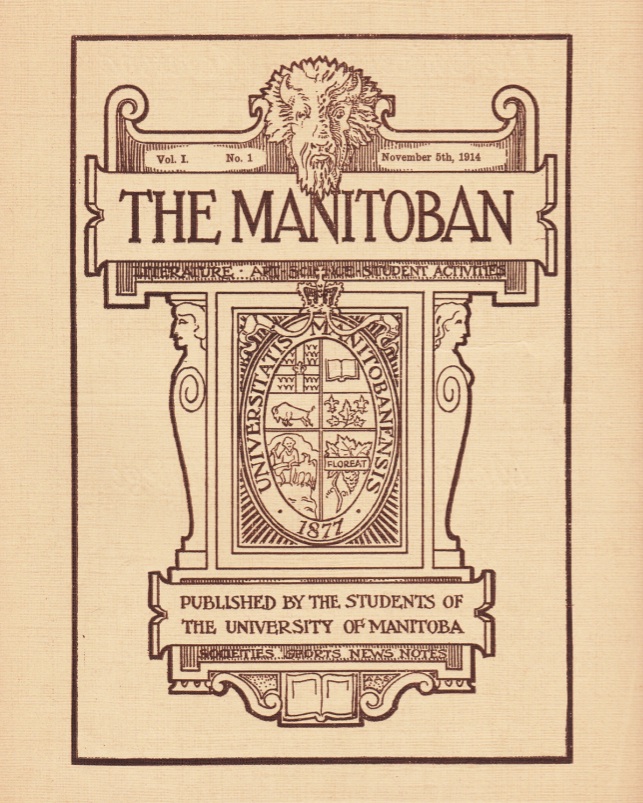Entering our 100th publication year in the campus news business, I’d like to take an opportunity to share a few anecdotes with the reader. I hope these will illustrate some of the less obvious, though nonetheless pertinent, reasons having an institution like the Manitoban accessible to university students and community members alike is so important.
We employees of your student paper—volunteers, reporters, associates, and editors—are at the beck and call of the U of M student body. We have a mandate to serve the students by reporting on campus-centric news of note, and we are poised to deliver stories of interest to our readership, stories perhaps not covered by larger, more prominent media outlets. We’ve done it since 1914; we have no plans of stopping.
The student press serves an integral role on campuses across Canada. The Manitoban’s raison d’être is to give the student community a voice and hold accountable the powers that be. But there’s more to it than providing a critical lens through which to view the politicking of university administration. We do something that the vast majority of students will never consider taking advantage of in their time at the U of M.
Unlike the University of Winnipeg or Red River College—the former offering a Rhetoric, Writing and Communication major; the latter a Creative Communications diploma program—the U of M does not offer an academic setting in which students interested in developing journalistic skills may directly do so. This makes the existence of the Manitoban all the more crucial.
Take my advice: force yourself to join student groups and movements; keep up with the goings-on of your student union; and get involved with your resident student newspaper, the Manitoban. I was once a naïve U of W student who, aside from having the occasional fleeting interest in what was happening on campus, managed to sleepily complete four years of university with very few vivid memories of the campus community experience. I regret that; however, currently pursuing my second undergraduate degree here at the U of M, I am far happier and more fulfilled being involved with the campus paper than I ever was the first time around.
I’ll spare you the platitudes . . . after just this one. University is a place to broaden your horizons, to challenge and constantly reexamine the many preconceived notions you’ve been led to develop throughout adolescence. What better way to do that than to read and get involved with an institution like the Manitoban?
Great minds like Graham Spry, former editor-in-chief of the Manitoban, got their start in the pages of this very paper. Spry eventually went on to work for the then Manitoba Free Press (currently the Winnipeg Free Press), was a political organizer throughout his life, championed the role of public broadcasting, and was the driving force behind the formation of the Canadian Radio Broadcasting Commission in 1932 – a commission that later developed into the Canadian Broadcasting Corporation (CBC). Spry wasn’t your ordinary university student, but doubtless the opportunities he seized a hold of writing for the Manitoban had a significant influence on the later trajectory of his illustrious career.
The philosopher of communication, Marshall McLuhan, too, wrote for the ‘Toban once upon a time. McLuhan was and is known for his many pithy tautologies and aphorisms related to communication and media theory – “the medium is the message” being one of the most powerful and timeless of them all. An undergraduate education in political science, communications, or journalism would be incomplete without his contributions to the aforementioned fields of inquiry. And yet, it was at a modest, smalltime university paper (ahem . . . ) where he cut his chops as a budding young critical thinker and author.
The National Post’s prominent political columnist, Andrew Coyne, as well as the CBC’s foreign affairs expert, Nahlah Ayed, are contemporary examples of former U of M students that took advantage of this platform and contributed to the Manitoban.
Most of our current and past staff first stumbled through our office doors at 105 University Centre uncertain of themselves, unsure as to whether writing for the masses was really the right fit for them. My path was about as circuitous and uncertain as they come. However, one thing our many contributors likely share is some small spark, a nagging suspicion, a scary urge to be part of something meaningful. The rest—becoming an effective and articulate communicator and investigative journalist—comes later.
Immerse yourself in your university community, lest you live up to the sentiment expressed by McLuhan in his polemic “Stupid Student Apathy” targeted at his fellow U of M students, and published in the Manitoban almost 80 years ago.
Bryce Hoye is the Editor-in-Chief of the Manitoban for the 2013-2014 school year, and would love if you would drop in and meet your humble student journalist servants at the ‘Toban.


